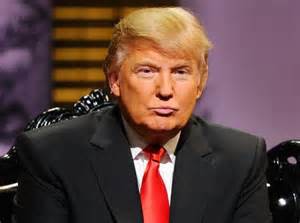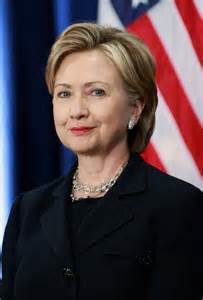 Back in 2000, as Democrat Al Gore was facing off with Republican George W. Bush in the general election for the presidency of the United States, many in the African-American community were ambivalent. Gore’s eight years as Bill Clinton’s vice president had been rather unremarkable, as vice presidents tend to be. Earlier concerns regarding his perceived attitudes during the time of Rev. Jesse Jackson’s attempts at the presidency had been forgotten, and he was thus seen as a reasonable successor to the then-proclaimed “first Black president”. Even Gore’s choice of conservative Democrat Joe Lieberman, while somewhat concerning, did not turn off African-American voters enough to consider George W. Bush, the Republican candidate and son of 41st president and Ronald Reagan successor George H. W. Bush. “W”, or “Dubya”, as the son would soon be called, was the former Texas governor who had presided over more executions than any other governor in the country, many of them African-American men, yet he still called himself “the compassionate conservative”.
Back in 2000, as Democrat Al Gore was facing off with Republican George W. Bush in the general election for the presidency of the United States, many in the African-American community were ambivalent. Gore’s eight years as Bill Clinton’s vice president had been rather unremarkable, as vice presidents tend to be. Earlier concerns regarding his perceived attitudes during the time of Rev. Jesse Jackson’s attempts at the presidency had been forgotten, and he was thus seen as a reasonable successor to the then-proclaimed “first Black president”. Even Gore’s choice of conservative Democrat Joe Lieberman, while somewhat concerning, did not turn off African-American voters enough to consider George W. Bush, the Republican candidate and son of 41st president and Ronald Reagan successor George H. W. Bush. “W”, or “Dubya”, as the son would soon be called, was the former Texas governor who had presided over more executions than any other governor in the country, many of them African-American men, yet he still called himself “the compassionate conservative”.
At a major march at the Lincoln Memorial shortly before the general election, Bishop George Stallings of the Imani Temple, an African-American Catholic church in Washington, DC, exhorted the crowd to oppose the Bush, pleading “Don’t let Texas become the United States!” “We don’t need a miracle! We’ll get our miracle when we elect Al Gore and Joe Lieberman,” he cried.
Others among us, unimpressed by the Democratic Party platform, dared America to elect Bush. “Give us our worst fear,” they said. “That will wake our people up and alert us that it’s time to organize.”
Of course, after a hotly contested election that came down to the last reporting state, Florida, the controversy erupted over the decision of the California Secretary of State, Catherine Harris, to throw out several ballots for reasons as varied as “hanging chads” and voters’ names having been deleted from the rolls due to (supposedly) criminal records and voter fraud, though these claims were later determined to be entirely baseless. As a result, the presidency came down to a vote in the Supreme Court over whether or not to count these contested votes, a 5-4 decision in favor of throwing the votes out which won George W. Bush the state of Florida and its key electoral votes. This directly led to the election of Bush as the 43rd US president. This despite the fact that Gore had won the majority of the national popular vote.
Having been given “our worst fear”, what did many of our organizers do? Did they mobilize in response as some of my good friends had expected? No, many of our organizers chose to “lay low” because of fears that they might be targeted by the police state that was being mobilized in conjunction with the war machine of vice president Richard Cheney. Unfettered by serious opposition, especially from organized Black groups, the US would walk out of the World Conference Against Racism (WCAR), terrorists would strike the World Trade Center and the Pentagon, and Bush would lead the US into one questionable war (Afghanistan) and one entirely improper and illegal one (Iraq) as the Geneva Conventions were being dismissed as “quaint” and unworthy of consideration.
Fast forward to today. Donald Trump, a man even former presidents George H. W and George W. Bush would refuse to publicly endorse, has been elected president, again as a result of several states that decided the contest late in the night, giving Trump the key electoral votes he needed to clinch the presidency, and again in spite of the fact that his opponent, Hillary Rodham Clinton, seeking to become the first elected woman president in US history, earned more of the national popular vote.
 There has been much hand-wringing, commiserating and outright sobbing over this result. The lost opportunity to break the “glass ceiling” for women and Clinton’s long list of qualifications (US Senator and Secretary of State after serving as First Lady during her husband’s eight years as president) obscured, for her supporters, the weaknesses of her candidacy. The disrespect she has endured since she was First Lady can be explained in large part by the rampant sexism that still exists in the country, especially in political circles, and a rather effective 30-year smear campaign by Republicans that has in part caused her to be viewed as an untrustworthy, and even sinister, candidate. Still, some of her “trust issues” were self-made, which included her initial support of the war in Iraq, her support of the war in Libya (which killed President Muammar Gadaffi at a time when he was being cooperative with the West and which has led to the financial crippling of the African Union) and her questionable use of a personal email server for government business, some of which appeared to include classified emails. Her support as First Lady for her husband’s policies regarding Ayiti (Haiti), for which Bill Clinton has apologized but not fully atoned, earned her the ire of Ayiti activists, most notably Marguerite Laurent (“Ezili Danto”) of the Haitian Lawyers Leadership Network, and her cheerleading of Bill Clinton’s Omnibus Crime Bill by touting the myth of the young Black “super-predator” led to numerous protests at her rallies over the last year by, among others, Black Lives Matter activists.
There has been much hand-wringing, commiserating and outright sobbing over this result. The lost opportunity to break the “glass ceiling” for women and Clinton’s long list of qualifications (US Senator and Secretary of State after serving as First Lady during her husband’s eight years as president) obscured, for her supporters, the weaknesses of her candidacy. The disrespect she has endured since she was First Lady can be explained in large part by the rampant sexism that still exists in the country, especially in political circles, and a rather effective 30-year smear campaign by Republicans that has in part caused her to be viewed as an untrustworthy, and even sinister, candidate. Still, some of her “trust issues” were self-made, which included her initial support of the war in Iraq, her support of the war in Libya (which killed President Muammar Gadaffi at a time when he was being cooperative with the West and which has led to the financial crippling of the African Union) and her questionable use of a personal email server for government business, some of which appeared to include classified emails. Her support as First Lady for her husband’s policies regarding Ayiti (Haiti), for which Bill Clinton has apologized but not fully atoned, earned her the ire of Ayiti activists, most notably Marguerite Laurent (“Ezili Danto”) of the Haitian Lawyers Leadership Network, and her cheerleading of Bill Clinton’s Omnibus Crime Bill by touting the myth of the young Black “super-predator” led to numerous protests at her rallies over the last year by, among others, Black Lives Matter activists.
Despite all this, she still won the large majority of the Black vote, primarily because of the fear of a Trump presidency more than any specific enthusiasm for Clinton or her platform, which had been forced to the left by the campaign of Vermont Senator Bernie Sanders. It was the White vote which won Trump the presidency. Apparently, a flawed candidate like Clinton was considered worse than a man whose own recorded remarks branded him as a sexist, racist xenophobe with a checkered business record littered with bankruptcies and lawsuits and little knowledge of world affairs or diplomacy.
So, now many Black people are upset about the election results. And apparently many Whites are as well, judging by the protests which erupted in cities across the country almost immediately after the election results became official. The terms most commonly used to describe people’s feelings, especially those of African-American citizens, Muslims and immigrants, tend to be some combination of fear, grief and anger.
My friends had dared America to elect another hard-right president with ties (in Trump’s case) to White nationalist right-wing groups, predicting that such a result would shake us out of the complacency we had willfully enjoyed (failing to pressure the most recent administration to deliver on the great promise of the last eight years) during the presidency of Barrack Obama.
When a similar situation had arisen in 2000, many of our activists failed to rise up and organize in opposition to the Bush-Cheney agenda. Whites did more on a national scale with Occupy Wall Street and the anti-WTO protests that had been named the “Battle in Seattle” than we did to mobilize our community. Of late, only Black Lives Matter (launched during the Obama Administration as a result of police–and police wannabe–killings of Black youth such as Trayvon Martin and Michael Brown) has reached the level of serious grassroots organizing among the Black community, and many of us have questioned BLM’s orientation toward gay rights and its alleged connections with George Soros. Still, those critics have yet to birth a serious national Black movement of their own.
Meanwhile, the organization I belong to, the Sixth Region Diaspora Caucus (SRDC), a grassroots-oriented organization that seeks to galvanize and organize the aspirations as well as the needs and issues of people of Afrikan descent throughout the Pan-Afrikan Diaspora, has been struggling to light a spark in our community since 2006. The effort has been going on in Maryland, where I live, since 2007. SRDC and other organizations have been plugging away for years, searching for that spark that might ignite the fire of unity in our people. Our search continues. As of this writing, SRDC-Maryland is holding a Pan-Afrikan Town Hall on Saturday, November 12 at the Union Mill, 1500 Union Avenue in West Baltimore, and we hope to hold more such Town Hall Meetings to bring our community together, to craft a Pan-Afrikan Agenda that is developed by our grassroots community to champion at the national and international levels, and to build a Blackprint for us to follow to unite our many and varied “Pan-Afrikan Unity” organizations so we can help ourselves.
Will the ascendancy of Trump to the single most powerful political position on the planet serve as the spark for us to finally organize ourselves? Or will many of our people once again retreat to the shadows, afraid of the repercussions of opposition to the latest Head of the Oppressor State?
Bro. Cliff
Editor, KUUMBAReport Online
Maryland State Facilitator, Sixth Region Diaspora Caucus (SRDC)
http://www.srdcinternational.org
